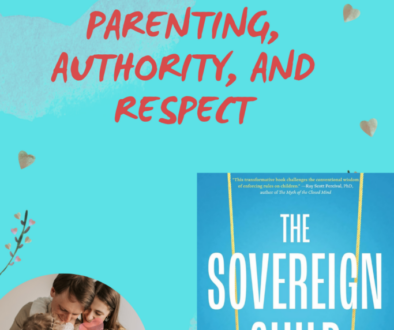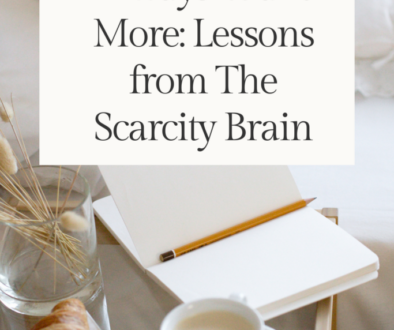Embracing Consistency: 5 Daily Habits Inspired by The Almanack of Naval Ravikant
Introduction
Recently, I reread “The Almanack of Naval Ravikant,” a book that has profoundly influenced my approach to personal growth and productivity. During this reread, I identified five daily habits that Naval emphasizes, which I am determined to incorporate into my life consistently this year. These habits are not entirely new to me; I have dabbled in them sporadically. However, this year, my focus is on cultivating these habits with intention and consistency. Let me take you through each habit and my plan to make them a permanent part of my daily routine.
Habit 1: Reading 1 Hour a Day
I have always enjoyed reading, especially books related to finance and personal growth. However, my reading habit was inconsistent. I would pick up a book and read “when I had time,” but during busy workdays or when I felt exhausted, I found myself skipping reading altogether. Interestingly, I could always find time to watch videos, often justifying it by multitasking, like watching while brushing my teeth.
But as Naval points out, “Reading science, math, and philosophy one hour per day will likely put you at the upper echelon of human success within seven years.” This quote struck a chord with me. While I do research and read many research papers, I haven’t been reading enough books on science, math, and philosophy. So, I bought books recommended by Naval and began reading them.
Inspired by this, I realized that forming a reading habit requires intentional effort. It takes around 21 days to form a new habit. By setting aside a dedicated hour each day, I aim to make reading a non-negotiable part of my routine. Now, it’s the first thing I do in the morning. This commitment not only enhances my knowledge but also instills a sense of discipline and focus.
Reading consistently has numerous benefits. As Joseph Addison said, “Reading is to the mind what exercise is to the body.” By immersing myself in books daily, I not only learn new concepts but also gain fresh perspectives that help me grow personally and professionally.
Habit 2: Daily Exercise
Physical health is the cornerstone of overall well-being, and daily exercise plays a crucial role in maintaining it. Naval emphasizes the importance of taking care of one’s body to live a fulfilling life. He prioritizes his physical health above happiness, family, and work, stating, “In the morning, I work out, and however long it takes is how long it takes. I do not start my day until I’ve worked out.” Inspired by this, I joined my wife’s morning exercise routine. I have committed to one hour of exercise each day.
Incorporating exercise into my daily routine was challenging at first, especially on days when work demands were high. However, by reminding myself of the long-term benefits and the immediate boost in energy and mood, I have managed to stay consistent. Setting achievable goals and gradually increasing intensity have also helped in making exercise an enjoyable part of my day.
Habit 3: Meditation
Meditation has been a transformative practice for many, including my wife. She shared her experience of starting with just 3 minutes before important meetings or presentations and found even this short duration immensely helpful in calming her mind and improving focus. Inspired by her experience and Naval’s emphasis on mental clarity, I decided to incorporate meditation into my daily routine.
Naval recommends meditating for one hour each morning because anything less may not be enough time to truly benefit from it. However, I don’t have the luxury of an hour each day. I started with 15 minutes during my lunch break and 5 minutes of meditation before important meetings.
Meditation has helped me gain better control over my thoughts, reduce stress, and improve my overall mental well-being. It’s a small investment of time that yields significant returns.
Habit 4: Writing
“If you can’t code, write books and blogs, record videos and podcasts.” – Naval Ravikant
Writing is another powerful habit. It helps in clarifying thoughts, reflecting on experiences, and fostering creativity. While I have always enjoyed writing, I lacked a structured approach. This year, I am committed to writing daily, whether it’s journaling, brainstorming ideas, or working on blog posts. I started by writing down the ideas and thoughts that came to my mind.
One of my friends, a very busy person who travels a lot, found inspiration to start writing during his flights. He would open his laptop and start writing, and eventually, he even published a book based on that experience.
By dedicating time to writing each day, I have noticed a marked improvement in my ability to articulate ideas and express myself. Writing has also become a therapeutic outlet, allowing me to process my thoughts and emotions more effectively.
Habit 5: Cold Showers
My journey with cold showers has been an interesting one. Two years ago, after I first read “The Almanack of Naval Ravikant,” I decided to give them a try. However, after two weeks, I caught a bad cold and abandoned the practice, retreating to the comfort of warm water. Reflecting on this, I realized that we often resist stepping out of our comfort zones. After rereading the book during the holiday, I decided to start again. Now, almost two weeks in, I am still on it.
Following Naval’s recommendation, I listened to the Tim Ferriss podcast with Wim Hof. It was an interesting listen. I learned that the benefits of cold exposure, such as improved circulation, increased alertness, and resilience, are too compelling to ignore. While the initial shock of cold water is still challenging, I am learning to embrace the discomfort, knowing that growth often lies just beyond our comfort zones.
Tracking Progress
To ensure consistency, I have adopted a method inspired by my son’s teacher. I printed a monthly calendar to track my progress with these habits. Each day, I mark a big smiley face on the calendar when I complete all five habits. This simple act of tracking has been incredibly motivating. Seeing a visual representation of my consistency and progress fills me with a sense of accomplishment.
This practice reminds me of the excitement my son felt when he completed his first month of daily reading and colored his tracker. Adding a small reward at the end of each successful month keeps me motivated and eager to continue.
Measurement offers one way to overcome our blind spots. By tracking your habits, you catch problems when they are small and celebrate progress when it is obvious. This small tracking practice has been instrumental in helping me stay on track and recognize my achievements.
Conclusion
As I reflect on the past two weeks of consistently practicing these habits, I can already see positive changes in my personal and professional life. The journey has just begun, but the foundation is set. I am excited to see how these habits will shape my year and contribute to my growth.
I invite you to reflect on your own habits and consider adopting a few that resonate with you. Start small, be consistent, and track your progress. Celebrate the small victories along the way, and remember that true growth happens through consistent effort. Share your experiences, and let’s embark on this journey of personal transformation together.





